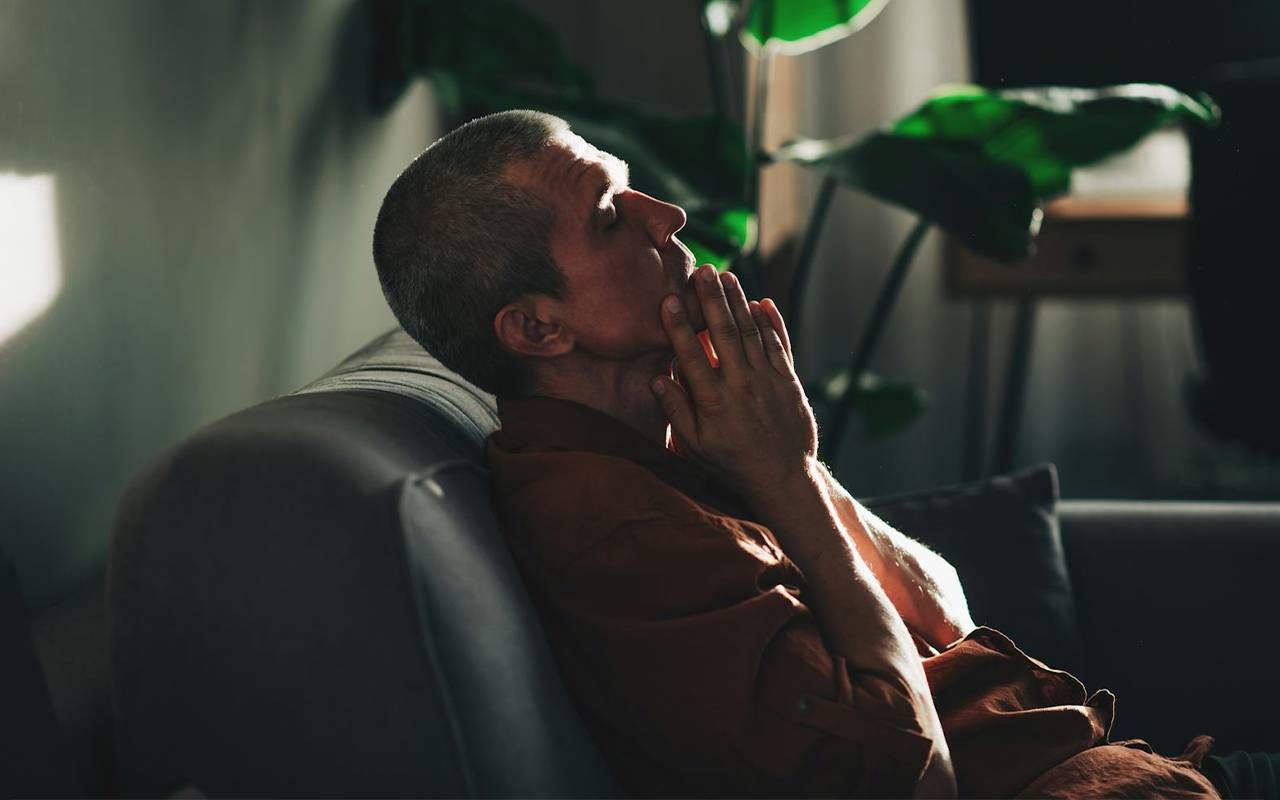Seeing Mental Illness
One in five older adults experiences a mental health condition, but many people are underdiagnosed or treated. Experts share tips on recognizing signs of mental illness among older adults.
As clinical psychologist Dr. Douglas Lane has worked with patients into their 90s, many of them grapple with major questions about where they fit in life. Many have told him, "I don't even know who to be anymore."

The transitions that people go through as they age can be challenging, and raise deep existential questions, says Lane, a clinical professor at the University of Washington School of Medicine. As older adults are going through changes, many factors can impact their mental health.
"Older adults are often overlooked, invisible, irrelevant, when it comes to mental health concerns and needs."
"We start developing as a child obviously, but we don't stop developing," Lane says. "Older age has its own unique developmental challenges and sometimes people have difficulty navigating those."
An estimated one in five adults over age 55 experience a mental health condition. Often needs go undetected or unaddressed, but there are effective treatment options. A first step to getting help is recognizing signs, which can range from shifts in mood to physical symptoms.
"Older adults are often overlooked, invisible, irrelevant, when it comes to mental health concerns and needs," says Dr. Regina Koepp, a clinical geropsychologist and founder of the Center for Mental Health and Aging. "That's largely based on an ageist perspective that as we grow older, we lose value, which is really harmful and also inaccurate."
Seeing Mental Health Conditions
There are a lot of misconceptions around what is typical with aging, according to Koepp. Many people believe it's normal to experience depression or anxiety in older age. There are also false assumptions that there's no point getting mental health treatment for older people because they won't change.
"In fact, depression is not normal, anxiety is not normal with aging, and older adults are just as capable of change as anybody else," she says.
For people of older ages, certain life events can contribute to worsening mental health. Grief for a spouse or close loved one can be difficult to navigate.
For people of older ages, certain life events can contribute to worsening mental health. Grief for a spouse or close loved one can be difficult to navigate. Diagnoses of a new medical condition can also be a risk factor. Another potential trigger is a big change, like retirement or moving out of a longtime home.
One older adult Lane worked with had been central to developing a type of aircraft during their career. It was a big emotional blow when that aircraft was taken out of use.
"When they retired the aircraft, this person grieved," he says. "It was an important part of their life."
It is normal to experience feelings like sadness, worry and stress. But when those feelings linger and become so severe that they start to impair a person's daily functioning or stop them from doing things they enjoy, then it could be a mental health condition.
Getting help is important, experts stress. Unaddressed mental health conditions can complicate other health issues, according to Lane and Koepp. In extreme cases, depression and other conditions can lead to suicidal thoughts. Over the last two decades, suicide rates have climbed among people over the age of 55. Men over age 85 have the highest rate of any age group.
But treatment can help relieve suffering.
"The bottom line is, you can't take care of yourself holistically if you're not taking care of the mental health pieces," says Lane.
Recognizing Mental Health Conditions
Among older people, depression is a common mental health concern. As people experience depression, they often take on a bleaker view of their world — what Lane calls "charcoal colored glasses."
"These assumptions begin to develop, like 'I'm worthless', 'I'm a burden on my family,' 'everything I do is wrong,'" he says.
"You can't take care of yourself holistically if you're not taking care of the mental health pieces."
They might feel blue or pessimistic. Some people may eat more than usual, or less. Likewise, shifts in sleeping patterns can be associated with depression. Another sign is a change in attention span, concentration or memory.
Anxiety is also common among older adults. Someone experiencing anxiety may feel restless or fidgety. They might be more worried, and caught up with many questions of "what if." For many, anxiety can be a general sense of worry or fear. Koepp has also had many patients with agoraphobia, a fear of going out in public. That can lead to people becoming more isolated in their homes.
In contrast to younger people, older adults may note physical symptoms of mental illness before they recognize emotional signs. Symptoms like gastro-intestinal distress, headaches and general pain can be associated with a mental health condition. Often, older people are more focused on their physical health, and their symptoms could be linked to pre-existing health issues. Because of social norms when they were younger, mental health can also be harder to discuss.
"There's more stigma toward mental health concerns and mental health care," says Koepp. "It's easier to talk about a physical complaint."
The use of substances like drugs and alcohol is a growing mental health concern. Studies find that older adults are drinking more. As people age, alcohol is metabolized more slowly, so it has a stronger impact. There's also the risk of potential interactions with prescription medications.
"The full picture is actually that older adults are incredibly resilient."
People with a substance use disorder may appear to be impaired or loopy, explains Lane. They may slip up on day-to-day activities, like personal hygiene or paying bills.
Help for Mental Health Conditions
There are broad range of mental health issues that impact people at older ages. Insomnia and sleep disorders are another common issue. Some people may experience more rare serious mental illnesses. Paying attention to symptoms can help people access support.
"The good news is that mental health conditions are highly treatable among older adults," says Koepp.
Checking in with a primary care provider is a good first step if someone is experiencing signs of depression, anxiety or other mental health issues. Some mental symptoms could be an indication of a physical health problem. Thyroid issues, for instance, can be associated with low energy and appear like depression. Medications can also have side effects that impact mental health. Primary care providers can look at symptoms in broader health context, and refer people to next steps that work for them.
There are a broad range of treatment options. For some people, talking with a therapist may provide support. Medication, like anti-depressants, are another tool that work for some. For substance use disorders, there are various treatment options, including group therapy.
For people struggling with mental health, it is possible to feel better.
"As we age, we become more resilient," Koepp says, explaining that resilience is built by overcoming hardship through life. That has a positive impact on mental wellbeing. "The full picture is actually that older adults are incredibly resilient."


